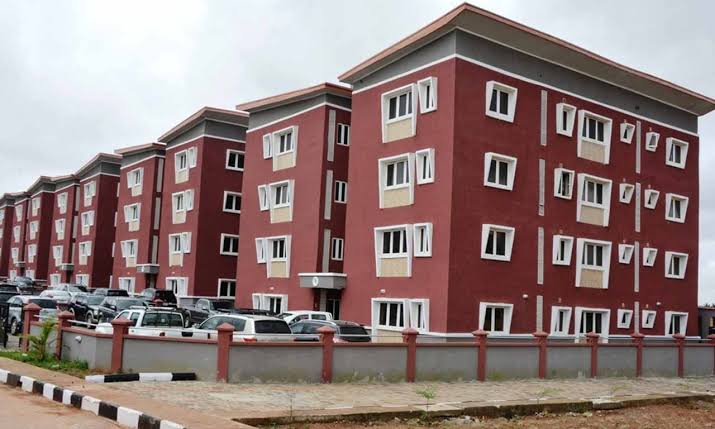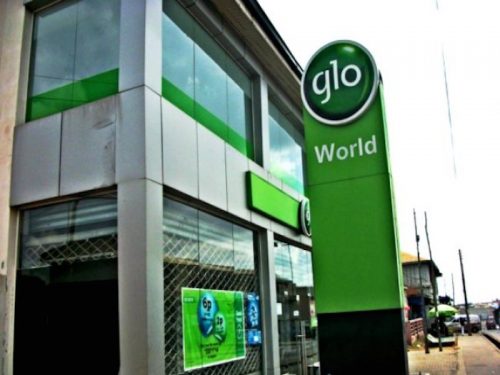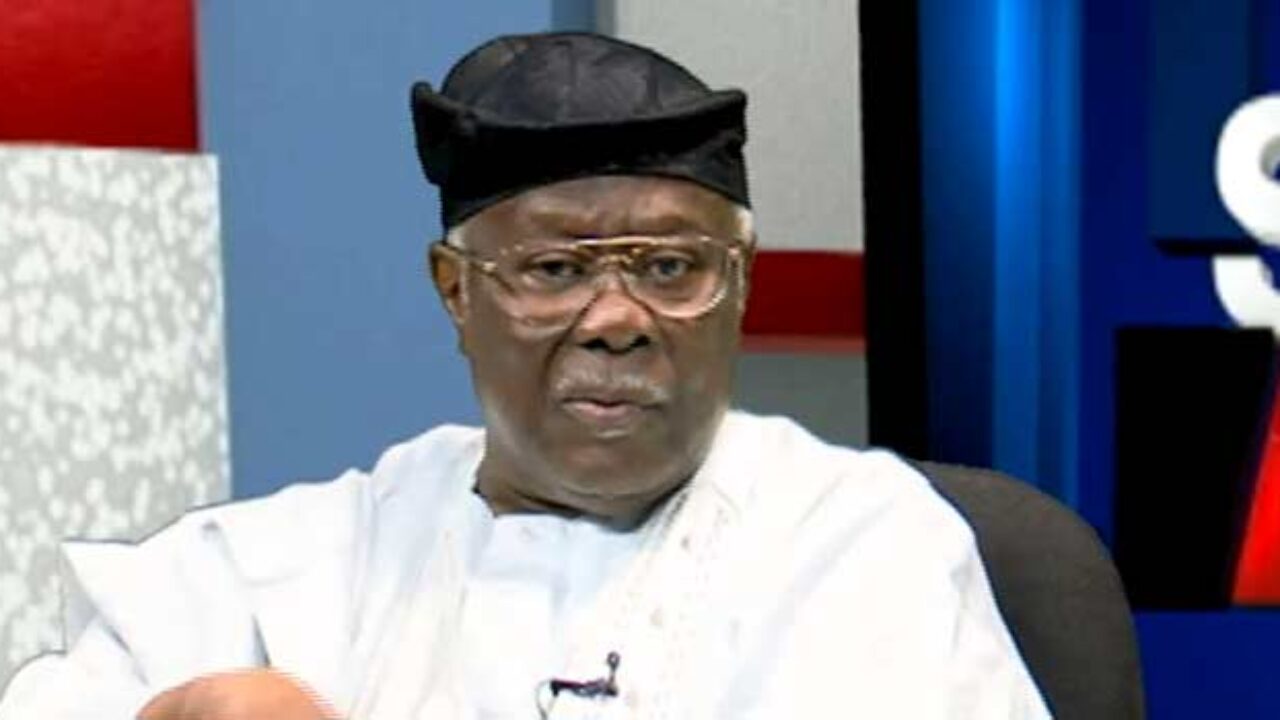Tenants, Agents, Landlords Debate Rising Cost of Rent in Nigeria

American psychologist Abraham Maslow in his hierarchy of need theory mentioned Safety Need which encompasses job, habitation and security.
Decent and affordable housing has been a perennial issue in Nigeria with the estimated 17 to 28 million housing deficit unchanged over the years despite efforts and policies by governments at different levels to increase housing units. According to stakeholders, nearly sixty percent of Nigerians live in slums and deplorable places. This includes 79 percent of residents in the Federal Capital Territory, Abuja and two-thirds of occupants in the nation’s commercial capital, Lagos.
Individual house owners and real estate firms have tried to close the widening housing gap but this comes with challenges of persistent rent increments and rent defaults which intensifies disputes between landlords and tenants. In the past year, nearly 90 percent of landlords have increased the cost of rent abruptly, with house agents becoming a more attractive career path. As inflation continues to squeeze the value of the Naira and disposable income, surging rental cost puts serious pressure on the property market, affecting private renters, small business owners and service providers in general.
In this piece, the DailyTimes team, comprising Motolani Oseni, Theresa Donatus, Stephen Adegboyega, Msugh Ityokura, and Peter Okutu, speaks with renters, landlords, and housing agents in Lagos, Abakaliki, Ibadan, Uyo, and the FCT, on the cost of securing and maintaining an accommodation.
How Tenants React to Rent Increase
Accommodation seekers, either for residency or commercial purposes, have a similar experience of almost yearly demand for an increase by their landlords. This has forced many to cut their family and business budgets to retain current accommodations. The majority of respondents say they have to endure the excruciating pains of extra payment to avoid the stress of going through a fresh search for housing.
However, handicapped tenants are left with no choice but to vacate their accommodations due to the inability to afford extra pay. They look for less spacious or lower-quality accommodations.
My landlord increased rent annually – Abuja Tenant

Albert Atume has just changed accommodation from one axis of the Tundunwada area of Lugbe in Abuja to another end due to a sudden increment by his landlord for his self-contained room.
He said, “I paid an increment for two years in 2023 and 2024 because I didn’t want to live far from my dry-cleaning business which is just a stone’s throw from my house. But, I could not cope with another increment in 2025 so I made up my mind to rent a new place which is also a walkable distance to my shop.
My landlord increased rent two times without any renovation or input. Even when I reported cracks on the wall, he said his concern is with whatever happens outside the apartment and not inside and that outside repair is limited to roofing.
Atume got his new accommodation through a friend because ‘Going through (an) agent is difficult . They will collect an inspection fee of N5,000 which is non-refundable and they will still collect the 20 percent agent fee before you pay the rent to the landlord.”
I had to move quickly – Abuja Tenant

Dahiru Abubakar also left his last place of business due to yearly rent increase. He sells household consumables, provision and runs a Point of Sale (POS) business.
“When my landlord told me that I have to pay extra money on rent, I quickly looked for a new place which is just two shops from my former place. I got the new place without much stress and I still have two months left before my tenancy will expire in the former shop. So, I decided to lock it up.”
I may quit my job and relocate to Afikpo – Abakaliki Tenant

Mrs Ewa Nkechinyere who lives around New Osborn Hotel Annex, Abakaliki, explained that the challenge facing her is paying for a rent that is higher than her income.
She said: “My biggest challenge has been the high cost of rent compared to my income. Even when I find a place within my budget, it’s either already taken, in poor condition, or in an unsafe neighborhood. Landlords also request very high upfront payments (like one year or six months rent), which makes it even harder. Remember my annual salary in the private firm where I work is 250,000, which can’t even pay for a self-contained room in Abakaliki here.
I’ve had to adjust both my budget and expectations. Initially, I was looking for a self-contained apartment in a good location, but because of rising costs, I had to start considering smaller spaces, shared apartments, or areas far from the Abakaliki town.
“I’ve also reduced my expectations about amenities, like steady water supply or modern finishes just to find something I can afford. But by next year, if things continue this way and I am unable to get a better job I may definitely relocate to my husband’s place in Afikpo and start up a business and live in the family house. I can’t kill myself.”
The high upfront payment is not helpful – Tenant

A tenant, Victor Nwegede, pointed out that the high advance payment required from a new tenant is the biggest challenge.
He said: “Many landlords request high advance payments – sometimes one to two years upfront, which makes it difficult to secure an apartment even when the rent seems manageable.
“Another challenge is the hidden costs including agency fees, legal fees, and caution deposits that push the overall cost far beyond the advertised rent.
“In addition, decent apartments in safe and accessible areas are quickly taken, leaving mostly overpriced or substandard options.”
On whether he did adjust his budget, so as to secure an apartment, his answer was affirmative..
“Yes, I’ve had to make several adjustments. Initially, I wanted a self-contained apartment in the city center, but because of cost, I am now considering the outskirts, even though it increases my transport expenses.
“I have also reduced my expectations in terms of size and amenities. For example, instead of a one-bedroom flat with a steady water supply, I’m now open to smaller units, sometimes without in-house facilities, just to stay within budget.
“Budget-wise, I’ve had to allocate a larger portion of my income to rent, cutting down on other expenses like leisure and savings.”
Affordability over comfort – Hameedat Abodunrin, Lagos Tenant
“I’ve definitely had to adjust my plans because of rising rents in Ogba. When I started my search, I was aiming for a two-bedroom flat, but with prices starting from ₦1.2 million to ₦2.5 million, I realised I could not sustain that with my income.
“I had to scale down to looking at mini-flats, which also cost around ₦1.5 million on average, and even that is a big stretch. I’ve also broadened my search beyond Ogba to nearby areas that may not be as convenient but are slightly more affordable.
“At the same time, I’ve had to lower my expectations about the kind of finishing or facilities I’ll get, because at this point, affordability has become more important than comfort.
Landlords decry high rent cost, blame agents

In the past, there was no cheating in house rent negotiation. We rented apartments out for as low as N1000, N500 and even N300. But now, it is so bad. Look at prices of the inputs; cement is N10,000, block is N800. Bricklayers that used to charge N700 for daily work now collect N8,000 to N10,000 daily.
“When tenants now come, the landlord has to pass on the cost. And tenants will always demand for well maintained properties. The tenants pay based on the available facilities. That is why some landlords don’t give houses to agents or caretakers anymore. Agents contribute to the current high rents you are witnessing.
Increasing rent by over 100% is criminal – Uche Joel, Abakaliki landlord

A landlord, Uche Joel, who has an apartment around Nnodo, Abakaliki, outrightly stated that the idea of landlords increasing the cost of rent under the guise of an upsurge in the price of building materials is an act of criminality.
“Actually, increasing house and shop rents to over 100% by landlords on the excuse that cost of building materials are so high, to me is criminal and should not be allowed to continue, because it has caused untold hardship to tenants and enriched landlords.
“Many people can’t afford N750,000, N800,000 and N1.2m that landlords have pegged their houses for one year for tenants. Many people have relocated to the villages for inability to pay the rents and these are people that came to the capital city to struggle for what they will use and feed their families”.
Tenants have higher standards nowadays – Wasiu Asipa, Lagos landlord
Mr Wasiu Asipa, a landlord in the Agege area of Lagos said the decision to increase rent is never arbitrary; it is mainly driven by the rising cost of maintaining the property and the realities of the market.
He said, “building materials have become extremely expensive—cement that was selling for around ₦2,500 a few years ago is now close to ₦8,000 per bag, and iron rods that used to be ₦2,000 to ₦2,500 are now above ₦8,000 to ₦10,000 each.
“Even basic items like tiles, doors, roofing sheets, and plumbing materials have doubled or tripled in price. When something breaks down in a flat, whether it’s roofing, plumbing, or electrical work, the cost of repairs now runs into hundreds of thousands of naira, not the tens of thousands it used to be
“At the same time, general maintenance has become more expensive. For example, servicing boreholes, fixing drainage, and handling security or compound cleaning all cost more because labour and service providers also raise their charges.
“In addition, tenants now expect certain improvements like better finishing, POP ceilings, tiled floors, and modern kitchens and toilets, which cost money to install and maintain.”
According to him, market demand also plays a role. “For instance, a mini-flat in Agege that used to go for about ₦300,000 to ₦400,000 per year three years ago is now between ₦600,000 and ₦800,000, while a two-bedroom flat that was ₦500,000 to ₦600,000 is now ₦900,000 to ₦1.2 million.
“So when I increase rent, it’s not just about following the market; it’s about ensuring that the property remains in good condition, that I can cover the cost of upkeep, and that the value reflects the huge rise in building and maintenance expenses. Without adjusting rent, it would be impossible to sustain the property and still meet tenant expectations.”
Artisans charge over 100% increase in repair costs – Ogun landlord
In Ogun state, Waheed Balogun increases rent in his Ijoko property because of the rising cost of maintaining and improving the houses.
“Building materials have become unbelievably expensive. Cement that used to be about ₦3,000 a bag is now close to ₦8,000, while blocks that we used to buy for ₦200 are now ₦500 to ₦600 each.
“Iron rods, roofing sheets, tiles, and plumbing fittings have all more than doubled in price. So, any time I need to carry out repairs or build new units, the cost runs into millions of naira, far higher than it did just a few years ago.
“Maintenance is another challenge. Borehole repairs, pumping machines, carpentry, and electrical works all cost more now because artisans and technicians also charge higher rates. Even simple jobs like painting a two-bedroom flat that used to cost about ₦120,000 now cost between ₦250,000 and ₦300,000 depending on the quality of paint. As landlords, we cannot ignore these realities if we want the houses to remain livable for tenants.
“So when I increase rent, it is not to exploit tenants, but to balance the rising cost of building and maintenance with the demand in the area. If rents remain stagnant while everything else gets more expensive, it would be impossible to maintain the property properly or to meet tenant expectations for a decent and secure home.”
Property Agents: A blessing or a curse
From next year, agents in Ebonyi state can no longer collect money from those seeking accommodation, as the state government has announced a ban on their operations. This effort aimed at curbing rising rents has been applauded by the majority of the population and is being advocated for in other states.
Barrister Yomi Ogunlola, lawyer and public commentator, decried the role of house agents in the unpleasant experiences of house hunters.
He said, “What the estate agents are doing is deleterious to the common people. House owners would give property out at the rate of N100,000, and they (agents) would be collecting as much as N250,000 and N300,000 on the same. This is especially so in Lagos. It is a very bad development. But it is heart-warming that the Lagos government is already looking into this menace.
However, Housing agents absolved themselves of unwholesome activities.
Higher deposits are required to hedge property damage – Abakaliki agent

A house agent within the Abakaliki metropolis of Ebonyi state, Mr. Ekele Ejike, noted that the state capital has recently witnessed a dramatic increase in rental costs, with reports indicating a rise of up to 100%. This surge has placed a burden on residents, leading to significant implications for both tenants and landlords.
He said : “As of early 2025, Abakaliki has become one of the most expensive cities for housing in Southeast Nigeria. Previously affordable neighbourhoods are now characterised by skyrocketing prices, prompting many families to reassess their living arrangements. A one-room self-contained apartment that once cost ₦200,000 per year is now ₦400,000, with luxury and serviced apartments exceeding these figures significantly.
According to him, common complaints from tenants and landlords during rent negotiations stem from the escalating prices and conditions of rental agreements
Oftentimes, issues with non-payment or delayed payment by tenants are frequent complaints, pushing landlords to be more stringent in rental negotiations. There is also the added concern of tenants not maintaining properties and incurring damage, leading them to seek higher security deposits or stricter lease terms.
Agency fee can be negotiated – Abakaliki Agent

Agency fee is one of the major factors to be considered in negotiations. Mr Obinna Ezugwu, a property agent and patient medicine store operator in Abakaliki, explains, “It may not necessarily be 20 per cent. It depends on the area. On big rents in town and federal housing estates, we do collect 20 per cent, but in local areas, we may lower the percentage to 10, depending on the understanding we have with the tenant.”
He acknowledged incessant annual increase of rents by landlords as a big strain on tenants seeking spaces for residential or business accommodations. He also defended the collection of inspection fees by agents as compensation for their time and travel efforts.
“Payment is on the first time of inspection. Anyone who charges on every inspection is just exploiting the person seeking accommodation.
“Agency fee is collected from the tenant . There is no cheating because everyone knows that agent fee must be paid. You have to agree with the house hunter before taking him/ her to the house,” he said.
House agents are not criminals; it is business – Abuja agent
Mr Sunday Alabi is an estate agent around the heavily populated Mararaba axis on the outskirts of Abuja. He said rather than criminalising house agents, several factors contributing to the rise in rental costs should be looked into.
Factors like high inflation and cost of living have resulted in adjusted prices all over. He also decried the high influx of people into the city, putting pressure on the limited housing stock in the satellite areas such as Mararaba , Airport road and the Kubwa axis.
“The increased demand for limited housing stock has led to higher rents”, adding that it is mandatory for agents to collect agency fees irrespective of the economic situation of house seekers.
He said, “Majority of our clients around this area are those looking for houses to live in. So, we do house searches, we take them on inspection and it is expected that we collect our 20 percent commission after a successful transaction.”
Tenants demand too much comfort – Lagos agent
“In the Iyana-Ipaja and Abule-Egba areas where I operate, tenants’ biggest complaints are about the quality of houses compared to the rent being asked. They often feel the finishing doesn’t justify the price, especially when they see houses with poor water supply, bad drainage, or no proper electricity connection still going for ₦500,000 to ₦700,000 for a mini-flat.
“They also complain about being rushed to pay, because once they show interest, landlords want money immediately, knowing another tenant is waiting. For landlords, their common complaints are about unreliable tenants—people who promise to pay but delay for months, or those who move in and then start quarrelling over service charges and maintenance costs.
“Landlords also complain that many tenants demand too much comfort for what they are willing to pay. So in most negotiations, I find myself balancing these two extremes: tenants pushing for fairness and better value, and landlords insisting on full compliance with their terms.
Prioritise dialogue over litigation – A word for the wise
Real estate expert and Chairman of the Association of Capital Markets Valuers (ACMV), Mr. Chudi Ubosi, noted that with arbitrary rent increases will come rent defaults.
These defaults reflect the toll of Nigeria’s struggling economy on both businesses and households and are mostly not personal. He therefore advised landlords to prioritise dialogue with tenants before resorting to legal battles, warning that litigation often leaves properties tied up for years while tenants exploit the system.
“It is better to lose a year’s rent than remain stuck in court for four years,” Ubosi said. He urged landlords to explore flexible solutions such as temporary rent reductions, phased payments or mutually agreed settlement terms.
How much longer Nigerians with fixed incomes will be able to adjust their budgets to meet up with the increase in rent is unknown. One thing however is certain, legislative measures may become necessary to sanitise the housing market.
Previous efforts to enact legislation have not yielded results. Senator Smart Adeyemi representing Kogi West senatorial district in the 9th Senate, presented a bill to restrain landlords from increasing rents arbitrarily in the outskirts of Abuja but the piece of legislation could not make a third reading.
While most government policies in response to the acute shortage in housing stock are mostly targeted at urban centers, there is a need for holistic social housing policies that considers all strata of society including slum and rural dwellers.










